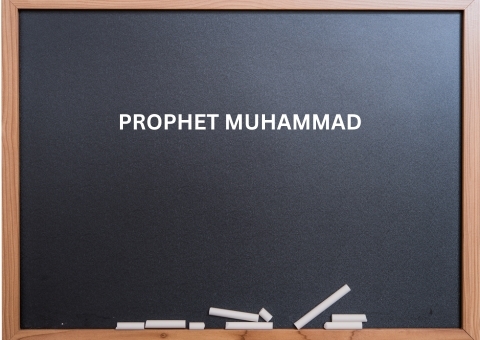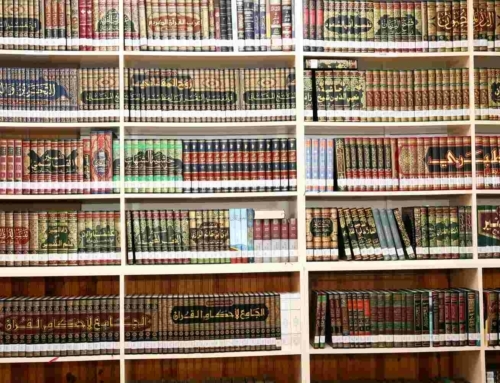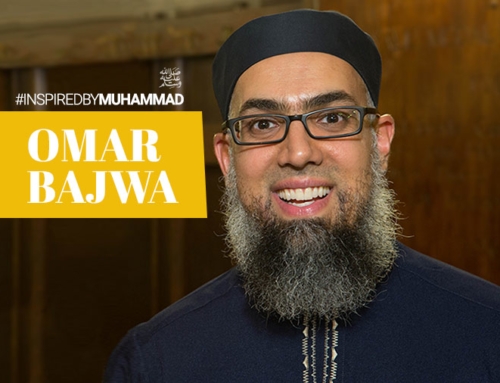By: Uzma Saeed
The Character of Prophet Muhammad
In just 23 years, a single individual transformed a fragmented group of people into a civilization that made monumental contributions to the world. No other man approached perfection as closely as Prophet Muhammad, peace be upon him, and none surpassed his level of success. Indeed, he serves as a role model in every aspect of life, whether as a head of state, commander, husband, father, teacher, and more.
One of the core criteria for all Muslims is not just to love him, but also to follow in his footsteps in all matters concerning human life. It is not sufficient to profess love in words alone but the words have to be exhibited in actions to complete the faith. His teachings, also known as the Sunnah, are central to Islamic faith and practice.
Prophet Muhammad, peace be upon him, was a man of exceptional character and abilities. His conduct and treatment of people drew them to him and even turned enemies into friends. He never took revenge for his own sake but he was never the one to back down from his ideology and belief.
“So by mercy from Allah, [O Muhammad], you were lenient with them. And if you had been rude [in speech] and harsh in heart, they would have disbanded from you…..” (Quran 3:159)
The best judge of a person’s character is usually the spouse who can see that person up close without any pretensions. His wife, Ayesha, vouched for his character when she said, “His character was the Quran” (Bukhari).
Prophet Muhammad, peace be upon him, was sent by God to convey His message to the people. This monumental mission required patience and commitment. In the era when Arabian society was fragmented into tribes and moral values were in decline, he wholeheartedly dedicated himself, both physically and emotionally, to inspiring, nurturing, and embedding moral values and virtues for the betterment of all humanity.
Teaching techniques of Prophet Muhammad
Prophet Muhammad, peace be upon him, mastered the art of building relationships, human psychology, and communication skills. He employed various methods to teach all audiences, male and female, young and old, literate and illiterate; all while he was unlettered, which in itself is a miracle.
Here are some of his teaching techniques:
Repetition
He often repeated himself to make sure that the teachings were heard and understood by those present. This not only made the audience more attentive but also gave them clarity on the subject.
Interactive Discussions & Questions
He cultivated an environment that made it conducive to engage with him by asking questions which helped his followers grasp the knowledge. He asked them questions and gave answers or he let them ask whatever was on their mind.
Versatility
He possessed an extraordinary talent for tailoring his message to suit the specific needs of his diverse audience. In order to reach a wide range of individuals, he crafted explanations that were both thorough and easily comprehensible.
Storytelling
A powerful method of education and public speaking is storytelling which helps the listeners to internalize the message and the concepts. Prophet Muhammad, peace be upon him, utilized it to instill the teachings of Islam in his companions. He once mentioned a man who drank from a well and as he was leaving, he found a dog that was eating moist earth out of extreme thirst. This man descended the well again to fetch water for the dog. God appreciated this act of kindness to the animal and forgave the man.
Analogy
He employed analogies to illustrate his teachings. As an example, there was once a woman in distress, searching fervently for her lost child. She found her child, embraced him, and started nursing him. The Prophet Muhammad, peace be upon him, asked his companions whether this woman would ever consider throwing her child into a fire. He used this scenario to convey the idea that God’s compassion far exceeds even the love of a mother for her child.
Comparison
He also taught by giving comparisons. For instance, he said “The example of a good companion in comparison with a bad one is like that of one who sells musk and the blacksmith. The one who sells musk will give you some perfume, you will buy some, or you will notice a good smell, but as for the blacksmith, he will burn your clothes, or you will notice a bad smell” (Bukhari). Through this comparison, he emphasized the importance of choosing good company over bad influences.
Imagery
A picture is worth a thousand words. Prophet Muhammad, peace be upon him, used it to teach his companions through powerful visuals. For example, he once drew a straight line through the sand to illustrate “the straight path” to guidance.
Attention
Even while juggling multiple roles as a head of state, commander, prayer leader, husband, preacher, father, and more, he managed to give individualized attention to his followers. He patiently lent an ear to their grievances, addressed their concerns, and encouraged critical thinking. When someone approached him or engaged in conversation, he, peace be upon him, would fully turn his body towards the speaker, demonstrating his deep attentiveness and respect for those he engaged with.
Role Model
He had an exemplary character. He was not a preacher alone but rather he had embodied what he was teaching. It is for this reason that God chose him as a role model to emulate. The principles set forth by him were simple to understand and easy to follow.
“Indeed in the Messenger of Allah, you have an excellent example for anyone whose hope is in Allah and the Last Day and (who) remembers Allah often.” (33:21)
Conclusion
Prophet Muhammad, peace be upon him, cared deeply for his followers and the world at large. He used all teaching techniques to guide people towards the straight path. The urge to convey the message effectively stemmed from his concern for the hereafter of people.
His exemplary character combined with his authentic message made it easy for people to connect with him, peace be upon him, and grasp the concepts. He taught justice, kindness, and the pursuit of knowledge, forming the ethical and spiritual framework for Muslims worldwide.
Got Questions?
We have Answers. Get in touch now.








